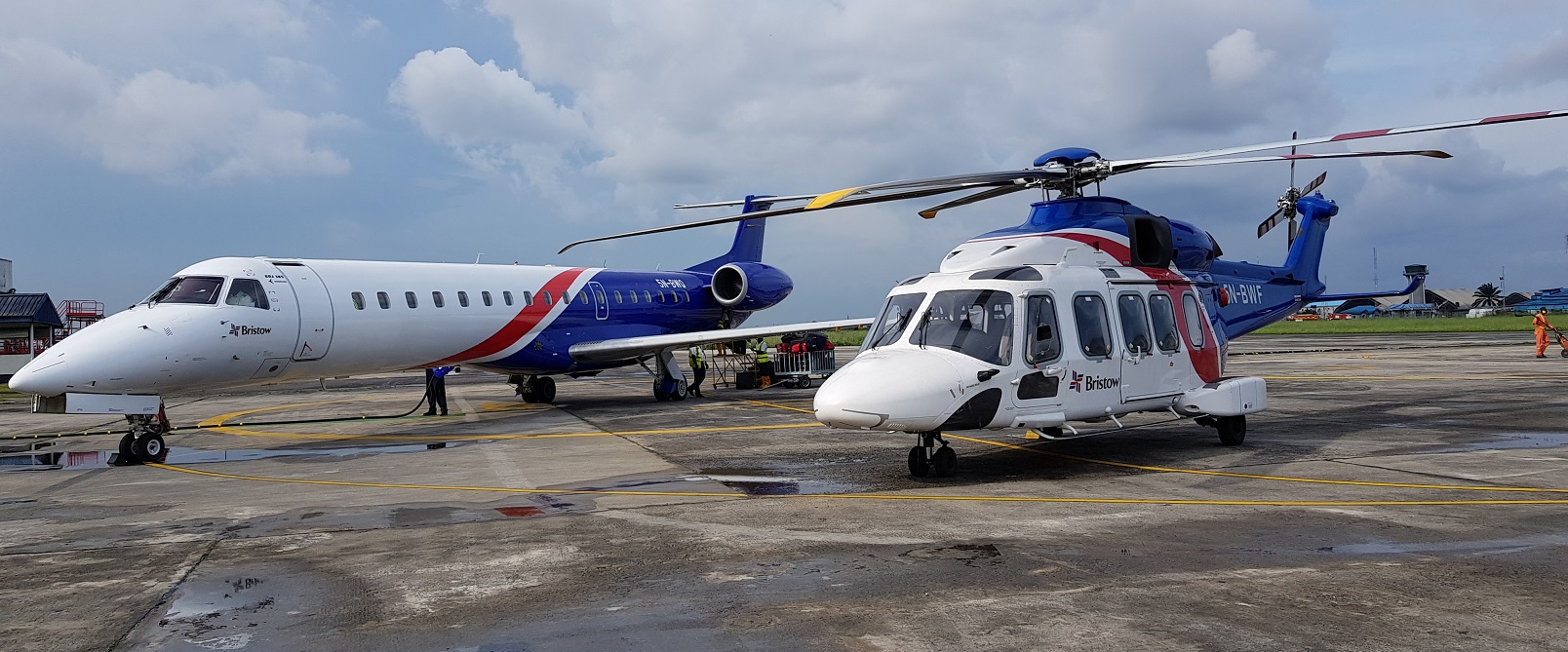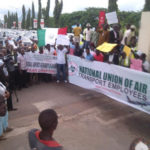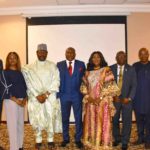
Bristow Helicopters (Nigeria) Limited (“Bristow”), the leading provider of industrial aviation services in Nigeria has recently increased its Nigerian fleet size with the introduction of at least six additional aircraft in the past six months. These state-of-the-art aircraft which include the Sikorsky S76D & S92, the Leonardo AW139 & AW189 helicopters, and also the Embraer ERJ 145 Jet aircraft serve to provide much more optionality and resilience to its operations in Nigeria, and further strengthen the company’s continuing support and commitment to its varied client base and particularly, to the Nigerian Oil and Gas Industry as a whole.
Bristow is the first and currently the only operator of both the Sikorsky S76D and Leonardo AW189 helicopter in the offshore Oil & Gas Market in Africa and currently the only operator of the Sikorsky S92 aircraft type in Nigeria with well over 32,000 flight hours flown on this aircraft type in Nigeria since its introduction to the country in 2008.
The Sikorsky S76D helicopter represents the latest variant of tried and tested S76 Series. A proven aircraft type that has flown well over 7 million flight hours since its first variant came into operation in 1977. This medium sized aircraft type and its variants is the workhorse of the industry. With its two Pratt & Whitney engines, composite blades, low noise signature, smaller D-Value, modern avionics suite and 400nm range, the S76D (as with the S76C++ type) is ideally suited to support the daily shuttles to the Oil & Gas accommodation platforms and unmanned offshore installations in the Niger Delta.
The Sikorsky S92 on the other hand, is the largest helicopter type supporting the Oil & Gas industry in Nigeria today and arguably the only ‘heavy’ type aircraft currently supporting the Oil & Gas industry globally. With its robust gear box design, 540nm range and 19-Seat capacity, this aircraft is ideally suited to long range, crew change flights to offshore Rigs, FPSOs and also for Search & Rescue. Besides providing an ideal opportunity for client sharing, the aircraft’s internal seat configuration and large cabin space and cabin windows essentially provide such room and comfort as to qualify it as an ‘airliner’.
The Leonardo AW189 is a new 8-tonne helicopter that sits ‘midway’ between the S76D and the S92 in terms of its seat capacity, size and range. It has also been designed to comply fully with the latest international regulatory safety requirements EASA/FAA Part 29 and JAR OPS 3/EU-OPS. A unique feature of particular importance to the AW189’s use for offshore and SAR operations is the fact that it’s main Gear Box has been designed to provide for a 50-minute run-dry capacity, well in excess of regulatory requirements. Bristow currently operates two of this aircraft types in Nigeria and has recently received the Nigerian Civil Aviation Authorities (NCAA) approval to include the type on its Operations Specifications after a very thorough certification and approval process.
According to Captain ‘Dapo Oyeleke, Managing Director of Bristow, these additions to the Bristow Nigeria fleet signify the importance, growth potential and confidence the company has in the Nigerian market.
“Nigeria continues to be a very important market for Bristow. Besides an unwavering commitment to safety and exceptional service delivery, our business strategy revolves around our understanding of individual client’s future requirements and ability to accurately forecast the needs of the Oil & Gas market; and then proactively delivering safe, best in class, and cost effective solutions tailored to fully meet those requirements. The twin-engined, air-conditioned Helicopters with 12, 16 and 19 passenger seat configurations in the medium, light heavy and heavy type categories offer our clients choice, flexibility and the ability to ‘breathe in, and breathe out’, in such a way that drives down their operating costs per seat, per mile, mitigates exposure to one ‘Original Aircraft Manufacturer’ OEM type and optimizes payload”.
Captain Oyeleke also commented that “we will continue to invest heavily in new innovative technology, our processes and above all our people. These additional aircraft will provide an excellent opportunity for us to continue to attract and retain the industry’s best; provide employment, train and ‘throughput’ our Nigerian National pilots, engineers and support personnel, in line with the market opportunities”.






